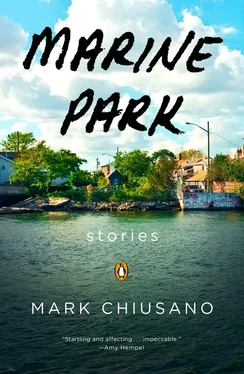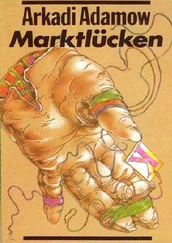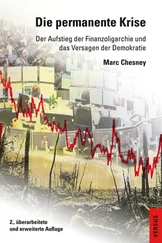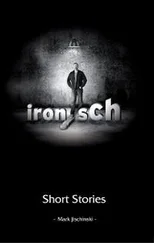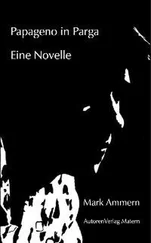Good business, Courtney said.
Good tips, the valet said. When I got Sean Penn’s car, once he got in, he gave me five hundred dollars.
A good day, Courtney said.
The valet nodded. He was drunk, said the valet. But he was real friendly. He shook my hand. The valet showed her his palm, as if the touch were still there. Are you some kind of actress too? he said.
Courtney thought about the nonprofit where she worked. It helped set up typing classes for women and the handicapped in Kibera, and got them work digitizing documents. She had wanted a women’s issue job, but she wasn’t in love with the outsourcing. Sometimes she left that part out. Timothy was an air conditioner repairman at an apartment complex in midtown, and he made more money than she did. Yes, she told the valet. My husband too.
Husband? the valet said.
You know what I mean.
I guess so. Sometimes you have to try it out. Would I have seen any of your movies?
I doubt it, she told him. She suddenly felt very tired. She realized, without having anything she could do about it, that she didn’t have any dollar bills in her purse. The drink was draining from her body, and she would have been ready for Timothy to walk over to her, for her to say she was sorry, for him to apologize first. I know you do things your own way, he would say, fumbling. They could make arguments out of nothing. It was exhausting just thinking about it.
The valet looked carefully down the wide sweep of the road, buzzing with night bugs.
Hell, he said, there’s no one coming. It’s the off-season, he said. He sat in the wicker chair next to her.
They listened to the creaking of the old windows, above their heads.
Have you ever been to Disney World? the valet asked. When she didn’t answer immediately, he said, Lots of guests go there from here.
No, she said. Timothy had gone all the time when he was younger, with his family, she thought she remembered.
The valet didn’t look surprised. For a while, he said, I used to work at one of the hotels right on the Disney campus. All-Star Sports Resort — although I liked Movies better. Sometimes they let us transfer. It wasn’t so up-class as it is here, but I liked it.
Courtney continued looking out over the porch.
I had a friend there, the valet said, whose job was to be one of the walk-around characters. One night it was such a long day, around the Christmas holidays, that after the parade, when he finally got off work, he wore his costume directly to the restaurant we were meeting at in Downtown Disney — he was one of those monsters from Monsters, Inc. At the place, he kept the mask from the costume between his legs next to a bar stool, but he stayed in the costume all night. And when parents came out of the restaurant with their kids — who I’d think should have been in bed by that time of night, but the guests always try to get as much in as they can — they’d cover their kids’ eyes when they walked past me and my friend. Like, seven or eight times. It wasn’t a coincidence.
Courtney had started paying attention in the middle of the story. The scene appeared in front of her above the porch railing. She realized that she was almost crying. She felt the tears coming up, like an epiphany or a revelation, which would clear her head and make everything sensible then; help her order her more or less acceptable life, she thought levelheadedly, an all right life even though it seemed problematic then. Was he all right, your friend? Courtney said, but the valet took it the wrong way.
I can put you in touch with him, if you’re looking for some acting work, he said gently.
Courtney gave him a tight smile, and nothing else.
• • •
On the wharf Timothy turned back around again, looked away from the hotel, looked out on the lighthouse blinking red, and off, and red, and off. He was too old to be jealous of someone talking to Courtney. He concentrated on a docked fishing boat whose cabin was covered with Christmas lights, not plugged in. It wasn’t like that when they met. It was at the Mariners, on Fillmore, where Timothy was watching a Rangers game with his lovesick cousin Eamon. Eamon lived in Carroll Gardens then, off the F train, but he came back to the Mariners sometimes since his girlfriend left. The whole bar noticed Courtney when she walked in. For some reason she came right up to Timothy. Hi, she’d said. Let’s talk for a little while. He wanted to tell her that he didn’t usually go to the Mariners; there was just the Rangers game. For the rest of the time there he tried to explain that. It had been a hot night, like this one, when they walked outside of the bar, leaving Eamon behind. It was muggy. Fillmore was the same distance from the water as here, practically, if Timothy thought about it geographically.
They had reservations at this hotel for three more nights. They were staying in the annex. It was a fifteen-minute drive away, and they would be here until the end of the week. Then there was nothing else. He guessed they would drive back home. They still rented their condo. He was OK with that, didn’t itch for anything different, which was why Courtney called him a fool, off and on again. There was all the time in the world, though. The water confirmed: all the time in the world. Timothy stayed at the end of the wharf for a while, waiting for Courtney to come back, but she didn’t, and at a certain point he didn’t dare turn around and look for her. It would have admitted defeat.
He looked out over the water. In the reflection of the lamplight, and the intermittent glow of the lighthouse, the bay between the island and the land shimmered, just a few lights on the other side of the coast. Timothy thought he saw something surfacing and disappearing in the waves, and when he looked closely he was sure he saw something, and heard a corresponding animal sound to go with it, but then he couldn’t be sure it wasn’t driftwood. The water lapped and lapped.
He walked down the end of the wharf to the dock, which had a door over it, a chain-link door leading to nowhere, with triangular extensions on either side, like sails or ears, to prevent climbing around. Timothy did it anyway, swinging himself around the sail. He walked to the end of the dock, where all the lights died away.
No one called for him. Courtney was on the porch. The seafood restaurant built on pilings right off the shore was closed, or else nobody was out to bother him at this hour. No waiters or valets came running. He’d always wanted to do something unaccustomed in life, like jump into an open body of water with all his clothes on, his shoes even. He thought about this sometimes on planes coming into JFK for a landing, over Rockaway Beach. But as he knew he would, he took off his clothes methodically, his jacket first and then his shirt, waiting modestly for his jeans to be last, his best pair of dress jeans. He laid these all out on the edge of the wooden dock. When he fell backward into the water, it hardly felt cold; just a continuation of the air on his skin. He remembered, without meaning to, what it had felt like, as a child, to learn how to swim — the overchlorinated high school pool, the gray lockers off the gym, the bang of their swinging back and forth. He dove deep, resurfaced, realized he couldn’t see the bottom, or anything close to the bottom, and for the first time in many times of swimming he felt scared, unsure of what was below the surface. Inadvertently he touched some driftwood, pulled his hand back in shock. It was so black, as far as he could see, and he couldn’t lift himself up farther. The oily water opened around him like a mouth, the orifice as far as he could see of some face. He scrambled up the slimy old metal rungs of the dock ladder. He sat there on the edge, gasping for breath, though he hadn’t realized he’d needed to. The hot air dried him after a while, and slowly his breathing calmed. He was shivering, leaning back, his arms hugging what they could of his body, and he felt entirely satiated.
Читать дальше
